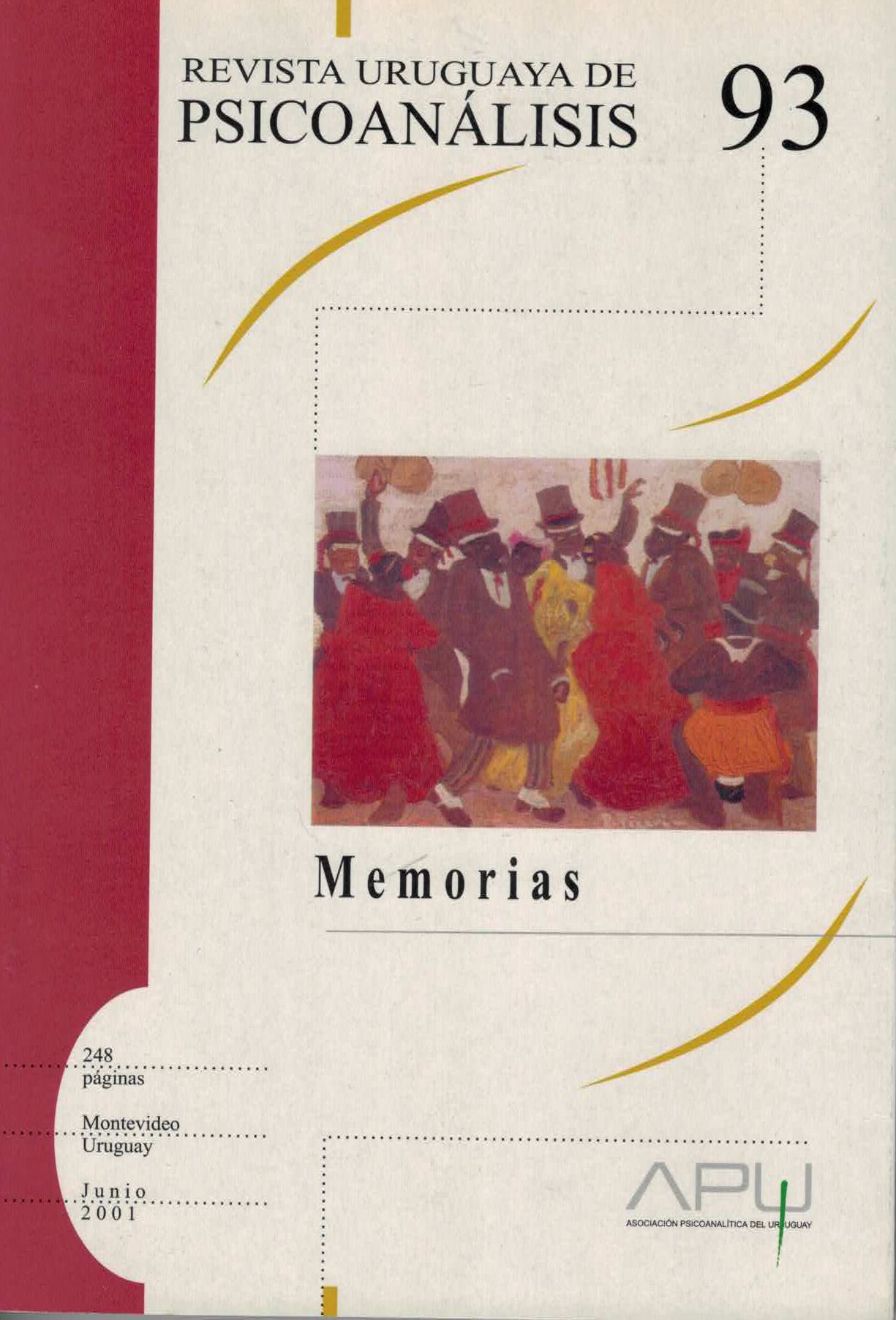Resentment, memory and grief
Keywords:
resentimiento, memoria, duelo, repetición, reminiscencia, tiempo, olvido, afecto, material clínicoAbstract
In this article, the author examines the relationship between resentment, time-perception and the mourning process. The rancunous subject (who experiences rancor and remorse) is described as a pitiless mnemonist. He cannot forgive others nor forgive himself. Overtaken by his vindictive recollections, he is unable to forget and he remains overwhelmed by the memory of a past which he cannot hold at bay and from which he cannot disentangle himself. Following the author, there are two types of memory: the one of rancor and the one of pain. The memory of rancor feeds on the hope of a forthcoming time for revenge, while the memory of pain prolonges itself through the time of resignation. It accepts the past, not to be considered as ballast, but as experience, without requiring to delete the pain concerning past events nor the corresponding awareness. It operates as a force
which structures non-forgetfulness and it organizes –via the life pulsion– an alarm signal which operates as a protecting factor, preventing the repetition of bad experiences and giving way to new ones. Through repetition instead, the memory of rancor reinstalls –via the death pulsion– the repetitive and unquenchable compulsion of a revengeful power.
The author underlines the crucial relevance of resentment –to be distinguished from hate– in the process of normal or pathological mourning. An intense ambivalence between love and hatred may disturb the mourning process, but when hate is replaced
by rancor, what follows is the paralysis of the mourning process. Finally, a clinical case illustrates the distinction between mourning about origins and mourning caused by origins in an adopted child.
Downloads
References
AMATI MEHLER, J., ARGENTIERI, S.: Esperanza y desesperanza ¿Un problema técnico? Libro anual de psicoanálisis 1990, Lima pág. 175.
BARANGER, W.: Los afectos en la contratransferencia XIV Congreso Psicoanalítico de América Latina. Buenos Aires 1992. T. I, pág. 197.
CHASSEGUET-SMIRGEL, J.: Intento fallido de una mujer por encontrar una solución perversa. Revista de psicoanálisis 1987. Tomo XLIV N.º 4, pág. 683.
DOREY, R.: La relación de dominio. Libro anual de psicoanálisis 1986, pág. 191.
FOUCAULT, M.: Microfísica del poder. Madrid, La piqueta 1991, pág. 77.
FREUD, S. (1915): Pulsiones y destinos de pulsión. A.E T. XIV., pág. 203.
FREUD, S. (1916): Algunos tipos de carácter dilucidados por el trabajo psicoanalítico. Las excepciones. A.E. T. XIV, pág. 319.
FREUD, S. (1926): Inhibición, síntoma y angustia. A.E. T. XX., pág. 136.
GRASS, G.: El tambor de hojalata. Buenos Aires. Sudamericana 1979.
HERNÁNDEZ, J.: Martín Fierro. Buenos Aires. Araujo 1945. Pág. 183.
KANCYPER, L.: La confrontación generacional. Buenos Aires. Paidós 1997. Pág. 49.
KANCYPER, L.: Resentimiento y remordimiento. Buenos Aires. Paidós 1991, pág. 18.
KANCYPER L.: Angustia y poder en la confrontación generacional. Rev. De Psicoanálisis. T. L. Número 6, 1993, pág.1215.
KANCYPER, L.: El afecto y el poder. Rev de Psicoanálisis. T. LVI, Nº 3, pág. 671.
KOLITZ, Z.: Iosl Rákover habla a Dios. Fondo de Cultura Económica. Buenos Aires 1998, pág. 15.
LAPLANCHE y PONTALIS: Diccionario de Psicoanálisis. Madrid. Labor 1971, pág. 329.
PELENTO M. L.: Duelos en la infancia. RUP. Duelo y Represión 88, pág 31.
SHAKESPEARE, W.: Romeo y Julieta. Clásicos inolvidables. Buenos Aires. El Ateneo 1953, pág. 503.
VIÑAR M.: El duelo por los orígenes. APU 2000. Los duelos y sus destinos, depresiones hoy. Tomo I, pág. 192.



 This work is licensed under a
This work is licensed under a 